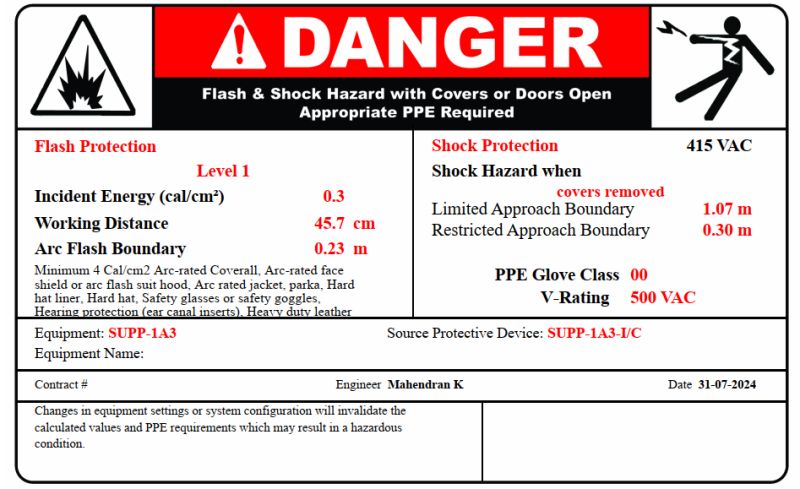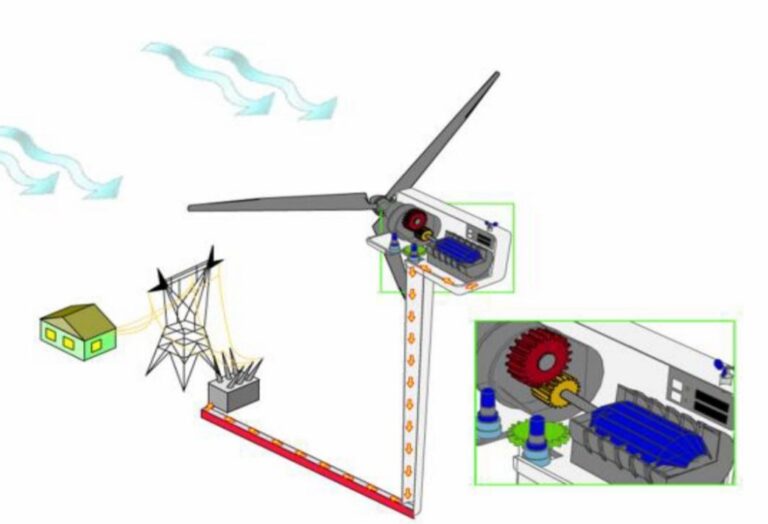How to read the Arc flash label?
⚡Arc flash boundary
The Arc Flash Boundary is the distance from a potential arc source where the incident energy is calculated to be 5.0 J/cm² (1.2 cal/cm²). Workers within this boundary must wear the appropriate PPE specified on the Arc Flash label for protection.
⚡Incident energy
The amount of thermal energy transferred to a surface during an electric arc, measured in J/cm² or Cal/cm². It increases as distance to the arc source decreases and decreases as distance increases. Workers must wear Personal Protective Equipment (PPE) based on categories listed on the Arc Flash label.
⚡Working distance
The space between the worker’s face and chest and the potential arc source (energized equipment or exposed electrical parts). This distance affects incident energy exposure, with closer proximity increasing risk.
⚡PPE Category
The Arc Flash Personal Protective Equipment (PPE) Category is determined by consulting the PPE are,
Arc-Rated Clothing, Minimum Arc Rating of 4 Cal/cm²(16.75 J/cm²)
Arc-Rated Clothing, Minimum Arc Rating of 8 Cal/cm² (33.5 J/cm²)
Arc-Rated Clothing, Minimum Arc Rating of 25 Cal/cm² (104.7 J/cm²)
Arc-Rated Clothing, Minimum Arc Rating of 40 Cal/cm² (167.5 J/cm²)
⚡Shock hazard voltage
Nominal system voltage is recorded in Volts and can be displayed as VAC or VDC.
⚡Limited approach boundary
Where there is a need for an unqualified person to cross the limited approach boundary, a qualified person shall advise the unqualified persons of the possible hazards and continuously escort the unqualified persons while inside the limited approach boundary.
⚡Restricted approach boundary
No qualified person shall approach or take any conductive object closer to exposed energized electrical conductors or circuit parts than the restricted approach boundary

